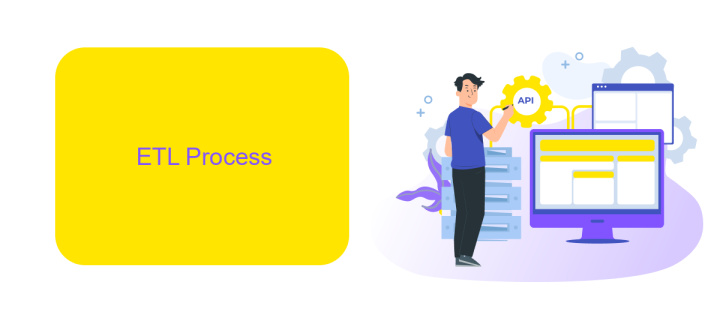What is ETL in Data Mining
ETL, which stands for Extract, Transform, Load, is a crucial process in data mining that involves extracting data from various sources, transforming it into a suitable format, and loading it into a data warehouse or database. This process enables organizations to consolidate and analyze vast amounts of data efficiently, providing valuable insights for decision-making and strategic planning.
Introduction
ETL, which stands for Extract, Transform, Load, is a crucial process in data mining and data warehousing. It involves extracting data from various sources, transforming it into a suitable format, and loading it into a target database or data warehouse. This process ensures that data is accurate, consistent, and ready for analysis.
- Extract: This step involves gathering data from different sources such as databases, APIs, and files.
- Transform: The data is then cleaned, normalized, and transformed into a consistent format.
- Load: Finally, the transformed data is loaded into a target system, such as a data warehouse.
Automation tools like ApiX-Drive can significantly simplify the ETL process by allowing seamless integration between various data sources and destinations. ApiX-Drive offers a user-friendly interface to set up data extraction, transformation, and loading without the need for extensive coding knowledge. This makes it easier for businesses to maintain data integrity and streamline their data workflows.
ETL Process

The ETL process, standing for Extract, Transform, Load, is a fundamental concept in data mining. It begins with the extraction phase, where data is collected from various sources such as databases, APIs, and flat files. This raw data is often unstructured and needs to be gathered efficiently to ensure completeness and accuracy. Tools like ApiX-Drive can simplify this phase by automating data extraction from multiple platforms, ensuring seamless integration and reducing manual efforts.
Once the data is extracted, it moves to the transformation phase. Here, the data undergoes cleaning, filtering, and formatting to meet specific requirements. This step may involve removing duplicates, handling missing values, and converting data types. The final phase is loading, where the transformed data is transferred into a target system such as a data warehouse or a database. This structured data is now ready for analysis, enabling businesses to derive meaningful insights and make informed decisions. ApiX-Drive can also assist in this phase by automating the data loading process, ensuring timely and accurate data availability.
ETL Tools

ETL (Extract, Transform, Load) tools are essential for efficiently managing and processing data in data mining. These tools help automate the process of extracting data from various sources, transforming it into a suitable format, and loading it into a target database or data warehouse. They are crucial for ensuring data accuracy, consistency, and reliability.
- Apache Nifi: An open-source ETL tool that provides data routing, transformation, and system mediation logic.
- Talend: A powerful ETL tool that offers a wide range of data integration and transformation capabilities.
- ApiX-Drive: This service simplifies the integration of various applications and automates data transfer between them, making it easier to set up ETL processes without extensive coding knowledge.
- Informatica PowerCenter: A comprehensive ETL tool known for its high performance and scalability.
- Microsoft SQL Server Integration Services (SSIS): A popular ETL tool for data integration and workflow applications.
Choosing the right ETL tool depends on the specific requirements of your data projects, such as the volume of data, complexity of transformations, and budget constraints. Tools like ApiX-Drive are particularly useful for businesses looking to streamline integrations and automate data workflows without extensive technical expertise.
Benefits of ETL

ETL (Extract, Transform, Load) is a fundamental process in data mining that ensures data is efficiently and accurately moved from one system to another. One of the primary benefits of ETL is its ability to handle large volumes of data seamlessly, ensuring that businesses can make data-driven decisions without delays.
Another significant advantage of ETL processes is the ability to transform data into a consistent format, making it easier to analyze and derive insights. This transformation step is crucial for maintaining data quality and integrity, which are essential for any data-driven organization.
- Improved data quality and consistency
- Enhanced decision-making capabilities
- Seamless integration with various data sources
- Time and cost efficiency in data management
Services like ApiX-Drive facilitate the ETL process by providing robust integration solutions that connect various data sources effortlessly. With such tools, businesses can automate the extraction, transformation, and loading of data, ensuring that their data pipelines are always up-to-date and reliable.


Challenges in ETL
ETL (Extract, Transform, Load) processes are vital for data integration but come with several challenges. One major issue is data quality; inconsistent, incomplete, or duplicate data can complicate the ETL process. Ensuring data integrity and accuracy during extraction and transformation is critical but often difficult, especially when dealing with large datasets from multiple sources. Another challenge is the complexity of transforming data to fit the target schema, which may require extensive data cleaning and normalization efforts.
Additionally, managing and maintaining ETL pipelines can be resource-intensive. Automating these processes can help, but setting up integrations between different data sources and destinations can be time-consuming and error-prone. Services like ApiX-Drive can simplify this by providing pre-configured connectors and automation tools, reducing the manual effort required. Performance optimization is another concern, as inefficient ETL processes can lead to slow data loading times, impacting overall system performance. Therefore, continuous monitoring and optimization of ETL workflows are essential to ensure they run efficiently and meet business requirements.
FAQ
What is ETL in Data Mining?
Why is ETL important in Data Mining?
What are the main components of the ETL process?
How can ETL processes be automated?
What challenges are associated with ETL in Data Mining?
Apix-Drive is a universal tool that will quickly streamline any workflow, freeing you from routine and possible financial losses. Try ApiX-Drive in action and see how useful it is for you personally. In the meantime, when you are setting up connections between systems, think about where you are investing your free time, because now you will have much more of it.

